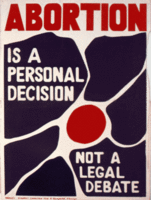
ADA under attack
LGBT community divided
The Americans with Disabilities Act (ADA) is about to celebrate its 10th anniversary. Across the country, disabled people and their advocates and families with join together to show the nation how the ADA has improved the lives of disabled Americans.
From the Accessible Society
Web site:
The Americans with Disabilities Act
The Americans with Disabilities Act (ADA) is the most comprehensive federal civil-rights statute protecting the rights of people with disabilities. It affects access to employment; state and local government programs and services; access to places of public accommodation such as businesses, transportation, and non-profit service providers; and telecommunications.
The scope of the ADA in addressing the barriers to participation by people with disabilities in the mainstream of society is very broad. The ADA's civil
rights protections are parallel to those that have previously been established by the federal government for women and racial, ethnic and religious minorities."The ADA is solely about 'equal opportunity', from its preamble to its final provision: like other civil rights laws, the ADA prohibits discrimination and
mandates that Americans be accorded equality in pursuing jobs, goods,services and other opportunities -- but the ADA makes clear that equal treatment is not
synonymous with identical treatment, says Professor Robert Burgdorf Jr., one of the drafters of the original bill that became the ADA."Letting every employee have an identical opportunity to use a restroom located up a flight of stairs may be "identical" treatment but it is hardly equal treatment for a worker who uses a wheelchair. The ADA is a mandate for equality. Any person who's discriminated against by an employer because of a real disability -- or because the employer regards the person as being disabled, whether they are or not -- should be entitled to the law's protection. The focus of the Act was -- and should be -- on eliminating employers' practices that make people unnecessarily different."
Progress at 10 years
Ten years after the signing of the Americans with Disabilities Act in 1990, this landmark federal law has proved a remarkable success, defying the gloom and doom predictions of many members of Congress that the law, designed to open up American society to its 54 million citizens with disabilities, would bankrupt the economy. At the same time however, the law has
not fully delivered on its keys promises to eliminate discrimination against people with disabilities in the workplace and in public accommodations.The ADA has profoundly changed how society views and accommodates its citizens with disabilities. Universal design -- the practice of designing
products, buildings and public spaces and programs to be usable by the greatest number of people -- has helped create a society where curb cuts, ramps, lifts on buses, and other access designs are increasingly common. In the process, we have discovered that an accessible society is good for everyone, not just people with disabilities.Curb cuts designed for wheelchair users are also used by people with baby carriages, delivery people, and people on skateboards and roller blades. With the Baby Boom generation poised to enter the population of seniors, the number of Americans needing access and universal design will grow enormously.
The ADA has created a more inclusive climate where
companies, institutions, and organizations are reaching out far more often to people with disabilities. Colleges and universities, for example, now accommodate more people with disabilities than they did before ADA, even though they have been obligated by law for nearly 25 years to make their campus and classrooms accessible.
"Flood of Lawsuits" Never Materialized
When the ADA was before Congress, some members predicted a flood of lawsuits that would bankrupt or at least overburden business. One Congressional
leader characterized the ADA a "disaster" benefiting only "gold diggers" filing frivolous lawsuits. Attempts continue to weaken the law through amendments.
Studies have shown, however, that businesses have adapted to the ADA much more easily - and inexpensively - than the doomsayers predicted. Some have even made money by making accommodations.Law Professor Peter Blanck of the University of Iowa has studied business compliance with the ADA, including Sears Roebuck and many other large
businesses, and found that compliance was often as easy as raising or lowering a desk, installing a ramp, or modifying a dress code. Another survey found that
three-quarters of all changes cost less than $100. Moreover, the predicted flood of lawsuits proved to be imaginary. Almost 90 percent of the cases brought
before the Equal Employment Opportunity Commission are thrown out. And only about 650 lawsuits were filed in the ADA 's first five years - a small number
compared to 6 million businesses, 666,000 public and private employers, and 80,000 units of state and local governments that must comply. The American Bar
Association recently conducted a survey and learned that, of the cases that actually go to court, 98 percent are decided in favor of the defendants, usually
businesses.Supreme Court Decisions Thwart Intent of ADA
Many people believe that Supreme Court decisions involving the ADA are impeding efforts to create a more accessible society. Law Professor Robert
Burgdorf has written, "Twelve years ago, as I drafted the original version of the Americans with Disabilities Act, I never dreamed that this landmark civil rights law would become so widely misunderstood and my words so badly misinterpreted, particularly by the body meant to protect the very rights guaranteed by the law." Despite tremendous strides forward, many people with
disabilities are dismayed that more progress has not come. In 1990, 70 percent of people with disabilities were unemployed, and the figure remains the same
today. Part of the problem, they say, is the adverse court rulings.Another problem has been contradictory federal policies that actually make it difficult for people with disabilities to work. Under current Social Security
regulations, a person with a disability is allowed to enroll in Medicare, but can earn only a few hundred dollars a month. Earn more than the limit and you
stand to lose all your benefits.Likewise, federal and state regulations are still biased in favor of nursing homes and institutional care providers over personal attendant services at home
-- a policy that dates to the 1960s when Medicare and Medicaid were created. This policy forces many people to live in nursing homes instead of at home, where they say they'd rather be in order to participate in their communities and, for many, obtain employment.People With Disabilities Disenfranchised
Another significant problem that hasn't disappeared in the decade since ADA was enacted is access to the voting booth. One study shows that the voting rate among people with disabilities is 20 percentage points less than non-disabled people, despite state and federal laws, including the ADA, which require polling places to accommodate disabled voters. The Federal Election Commission has reported that more than 20,000 polling places across the nation are inaccessible, depriving people with disabilities of their fundamental right to vote. Frequently, polling
booths are set in church basements or in upstairs meeting halls where there is no ramp or elevator, or disabled parking.This means problems not just for people who use wheelchairs, but for people who use canes or walkers too. And in most states people who are blind don't have the right to a Braille ballot; they have to bring someone along to vote for them.
While much remains to be done to achieve the accessible society, the ADA stands out as what one respected Washington observer called "one of the
government's greatest successes" of the past decade. Increasingly, in part because of the ADA, people are beginning to look at disability in a different way. As Professor Robert Silverstein of George Washington University has written, "Disability, like race and gender, is a natural and normal part of the human experience that in no way diminishes a person's right to live a normal life and participate in mainstream activities."As I sat down to do my duty and forward a Lambda Legal activism alert warning against William Pryor, a Bushie judicial nominee who is particularly virulent with regard to the Americans with Disabilities Act, I really was not expecting the tirade against the post made by a nutcase in California who parades around boasting that he really is just like all the white, Christian, heterosexual, conservative fascists except for the fact that his sexual partners are men. What a wonderful thing about which to brag!
The scary part is that he is correct. I have not often had to deal with this kind of idiot in my years of activism. Despite the fact that nearly all of my activist endeavors in the last five years or so have been almost entirely in the LGBT arena, I have been privileged to meet some wonderful, intelligent, and sensitive gay men who have enriched my life in innumerable ways. Then this jerk comes along to remind me that LGBT is not the only community that I embrace. Of course, I'm a feminist. I learned long ago that the reformist feminist mindset is not one that I can claim. I'm an old-time radical feminist who is utterly delight with the young, progressive, queer youth who are making their voices heard more and more lately. I saw quite a few of them yesterday on the Live Eight concerts. They made me smile all day. I am fortunate to have wonderful progressive friends who come from a literal rainbow of life paths and origins. That is what it's all about, after all - to make our voices heard, the choir must grow. The song must be sung in every language, in every pitch, in every country, by every race.
It's hard work to try to make that happen. It is truly a labor of joy.








